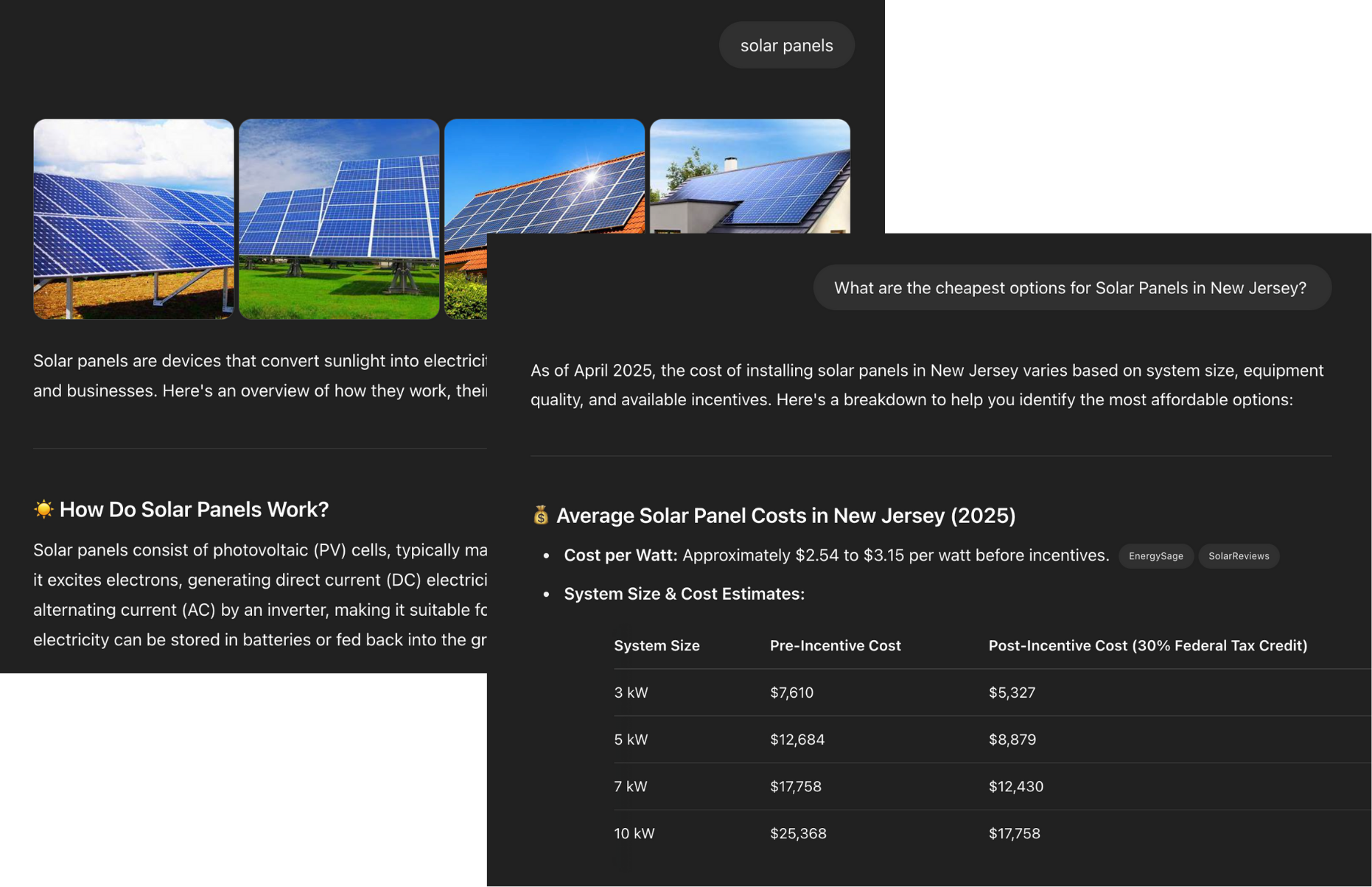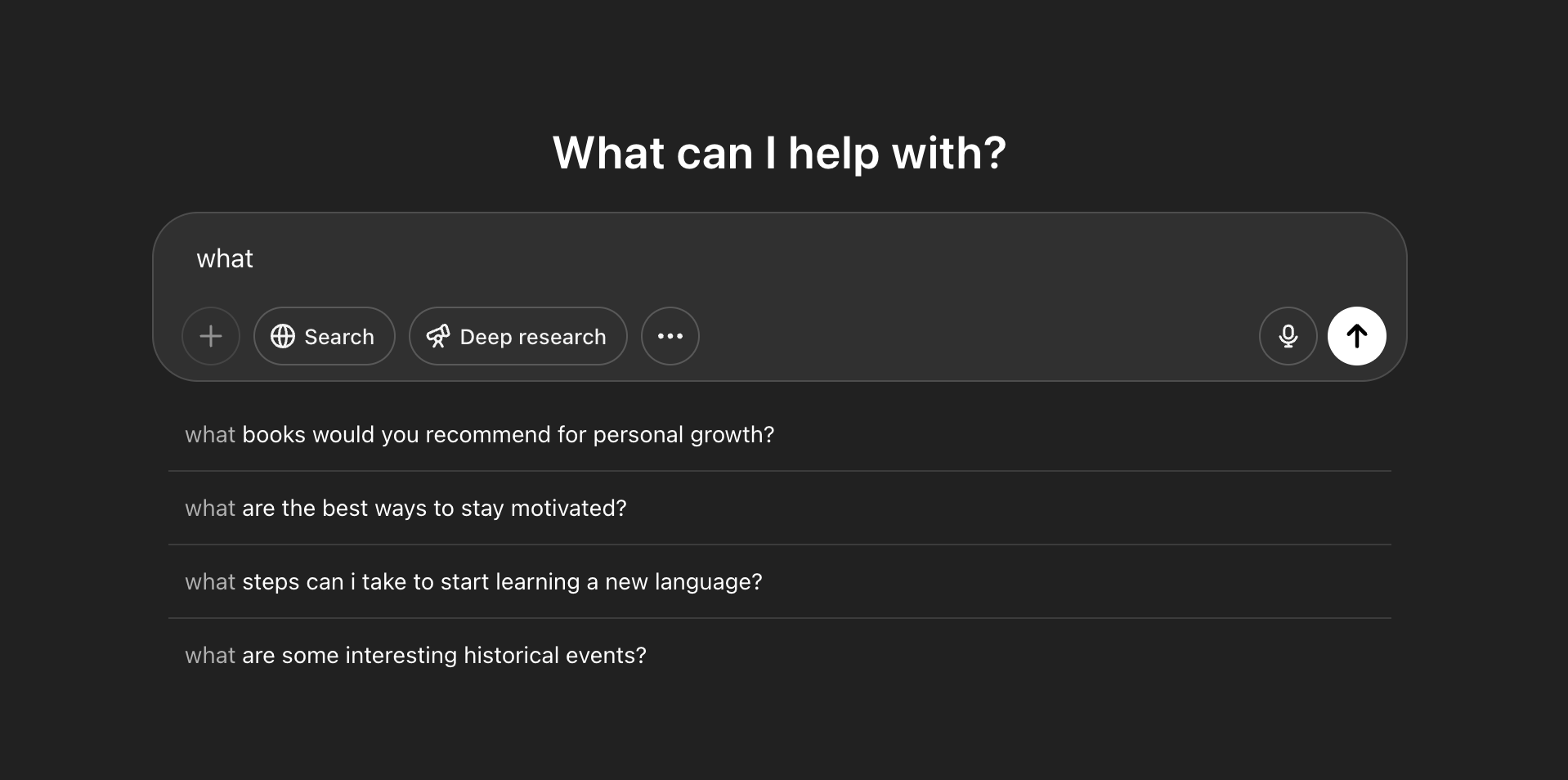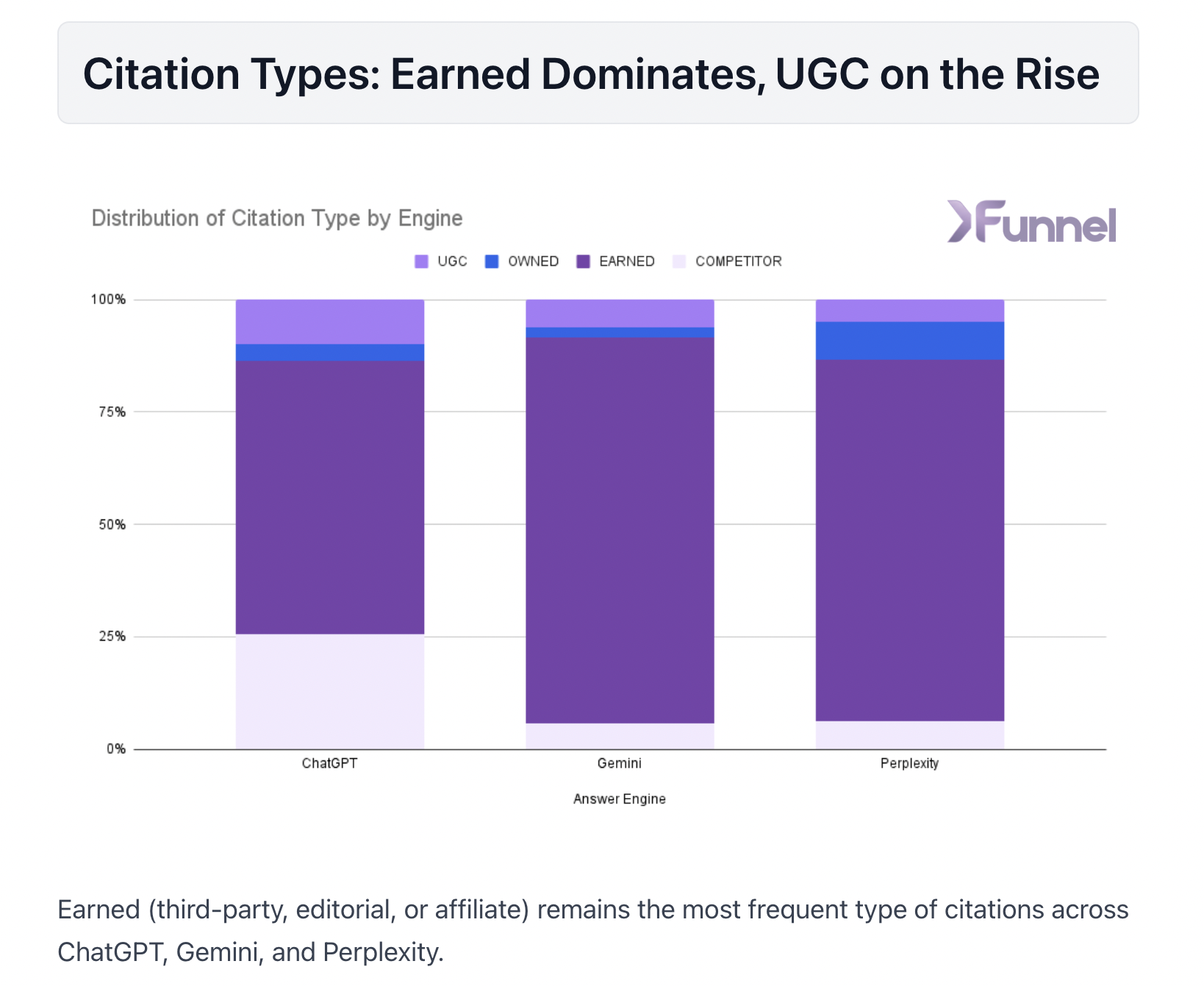
Introduction
Search engine optimization isn't what it used to be. For years, keyword research was the cornerstone of SEO strategy – find the right keywords, optimize your content, and climb the Google rankings. But now, with AI-driven search platforms like ChatGPT and Perplexity and Google's Gemini, users are asking full AI search questions instead of typing isolated keywords. This fundamental shift highlights how AI search questions differ from traditional keyword research and is forcing SEO professionals and content marketers to rethink their approach. In this post, we'll explore keyword research vs AI search questions, comparing traditional methods with modern ways of discovering AI-driven search queries, exploring the old limitations and how LLMs and generative AI are reshaping search.
The Limitations of Traditional Keyword Research
Traditional keyword research has serious drawbacks in today's AI-powered context. The classic approach of chasing high-volume terms often overlooks the why behind the query – the user's intent. As one SEO expert noted, these tools "don't uncover the hidden context behind searches," causing marketers to focus on popular terms while ignoring search intent.
For example, "solar panels" might have huge search volume, but without context you can't tell if a user wants to buy panels, find installation tips, or learn how solar power works. If your content doesn't align with what the searcher actually needs, it's a missed opportunity. Common pitfalls of the old approach include:

- Volume over Intent: Prioritizing high-volume terms even when they're broad can draw visitors whose needs don't match your content.
- Outdated Data: Relying on historical keyword data may miss emerging topics and the long-tail, conversational queries people now use.
- Generic Content: Optimizing for a single generic keyword often leads to one-size-fits-all content that fails to fully answer the real questions users have.
In short, keywords alone are no longer enough. When examining keyword research vs AI search questions, it's clear that modern search engines prioritize intent and context. To keep up, we need to go beyond plain keywords and start thinking about the actual questions users are asking.
How Generative AI is Changing Search Behavior
Google's AI Mode in Search uses conversational queries to deliver more contextual results.
The rise of generative AI and LLM-based search engines has fundamentally changed how people search. Instead of typing terse phrases like "best running shoes 2025," users now pose natural, detailed questions or even converse with AI assistants. Queries are longer, more specific, and more nuanced than the old single-keyword searches.
For instance, rather than a short query like "best running shoes 2025," a user might ask an AI, "What are some affordable running shoes with good arch support for marathon training?" – a much more detailed request. The AI will parse the question and deliver a direct, synthesized answer. The takeaway for SEO is that we must anticipate the actual questions our audience is asking (in natural language) and ensure we have content that directly answers those queries.
Generative AI also changes where the answers come from. These models pull information from all over – official websites, third-party blogs, forums, reviews, and more – to craft a response. Studies show third-party "earned" content (like editorial sites and affiliate blogs) dominates AI-generated answers, followed closely by user-generated content on forums and Q&A sites. What sources do AI Search Engines cite? This study analyzed 40,000 responses and 250,000 sources. In other words, AI is drawing on the broader online conversation about a topic, not just a single website.
This shift toward conversational, answer-first search means SEO professionals must adapt. We have to think in terms of questions and context, not just individual keywords. What questions are people actually asking about our industry or products? And is our content visible to the AI when those questions come up? If an AI provides an answer and your brand isn't part of it (as a source or mention), you've missed out. Optimizing for generative AI search is about making sure that when people ask the AI, your content (or insights from it) is included in the answer.
Discovering AI-Driven Search Questions
How can you figure out which questions to target? If traditional keyword tools fall short, it's time to tap into new data sources and tactics. Here are effective ways to discover the questions real users are asking in the AI era:
- Mine User Forums & Q&A Sites: Platforms like Reddit, Quora, Stack Exchange, and niche forums are goldmines of natural-language questions. They reveal how people phrase their inquiries and what subtopics come up frequently. These are likely the same questions users pose to AI chatbots.
- Autocomplete and suggested queries: Almost all AI search engines have autocomplete or suggested questions. Those are great indicators of what people are actually looking for.

- Learn from Competitors: See what questions competitors address in their content (e.g. blog posts, FAQs, help centers). Also, notice if competitors are being cited in AI responses. If an AI often references a competitor's article when answering a question, that's a question you should be answering too.
- Leverage AI: Use AI as a research assistant. OpenAI $200 model (o1-pro) and perplexity Deep Research, has access to the internet and can surface common queries based on UGC, active conversations online etc.
The goal is to build your content strategy for AI search around actual user questions, not just a list of keywords. When your topics align with real questions people ask, your content is more likely to match their intent. And by gathering a large sample of questions (from forums, search suggestions, AI outputs, etc.), you can prioritize the most frequent and high-impact ones, focusing on content that addresses what many users want to know.
Embracing an AI Visibility Optimization Platform
Adapting to this new Q&A-focused SEO is much easier with the right tools. That's where an AI visibility optimization platform like xfunnel.ai comes in. Instead of guessing which questions are trending or how well you're doing, the platform provides data-driven insights and guidance.
Here's how xfunnel.ai can help:
- Visibility Tracking & Gaps: Instantly see which questions your brand appears for in AI search results – and where it's missing. Spot high-value questions where competitors show up but you don't, so you can fill those content gaps quickly.
- Actionable Recommendations: Get specific suggestions for improving your AI search presence. The platform might tell you, for example, to create content about a frequently asked question you haven't covered, or to add a certain detail that AI models look for in answers. This takes the guesswork out of optimization.
- Continuous Monitoring: Stay updated as new questions trend or AI algorithms change. xfunnel.ai watches the landscape and alerts you to shifts – like a new topic surging in your space or AI starting to favor a particular source – so you can adapt your strategy proactively.
Using a platform designed for the AI era means you base your decisions on real-world data from AI queries, not just hunches. It's like having a specialized SEO dashboard focused on ChatGPT, Bard, Bing Chat and others, telling you where you stand and how to improve.
Conclusion & Next Steps
The SEO playbook is changing – from a keyword game to a question game. Understanding how AI search questions differ from traditional keyword research is crucial for modern SEO strategy. To stay ahead, start thinking about the queries your audience is likely to ask AI assistants, and position your brand to be the one with the answers. By shifting to an AI-focused, question-driven SEO strategy, you're essentially doing AI optimization for visibility – positioning your brand to maintain (and even grow) your organic reach as search evolves.
Many competitors might still be optimizing just for traditional search, leaving the AI search channel wide open. This is your chance to jump in early. By embracing AI-driven content optimization now, you can become the go-to source that AI platforms rely on for answers in your niche.
Ready to move from keywords to questions? xfunnel.ai is here to help. Let xfunnel's AI visibility optimization platform guide you to improve your presence and become the trusted answer across AI search engines.
Don't get left behind as search evolves. Embrace the new era of AI-driven SEO by focusing on the questions that matter. Try xfunnel.ai for free or book a demo today to see how our platform can boost your brand's visibility across AI search results.
Related Posts
- What AI Search Engines Want in Your Citations – Discover how AI search engines are changing content discovery and what types of citations help boost your visibility.
- llms.txt: The New Frontier of AI Crawling and SEO – An introduction to the proposed llms.txt standard for making your website more accessible to AI crawlers.
About the author

Nathalie Krant is an SEO professional with over 15 years of experience, specializing in highly competitive sectors. She is recognized for her expertise in all aspects of organic search optimization, with a strong focus on international markets. Nathalie has a proven track record in developing and executing SEO strategies that drive growth and visibility. In recent years, she has applied her expertise to the fast-evolving AI industry.
